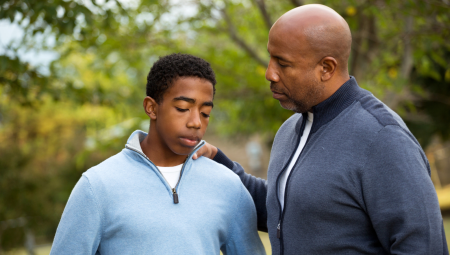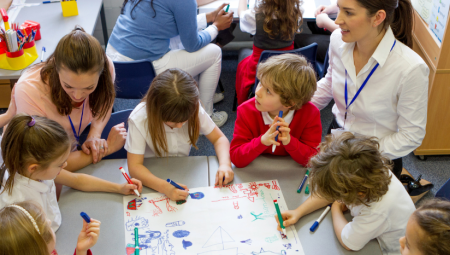Summary
Depression in young people is a serious problem that can lead to lifelong poor mental health and stigma. Depression is reported in around 20% of under 18s, and over half continue to be depressed into adulthood. Problems include difficulties at home and school, maintaining friendships and taking part in social activities, including exercise. Young people with depression often delay seeking psychological support. Antidepressants can help, but they have negative side effects.
Research shows that adults with depression benefit from exercise, but it is not known whether exercise is helpful for young people who are depressed. In addition, the level of exercise required for a positive effect is not known and this information is important when deciding on treatment.
There is a need for high quality trials in this area to advise the design of exercise programmes to reduce depressive symptoms in young people, and to assess the effect of exercise intensity.
Project aims
The overall aim of this study was to find out whether exercise is an effective treatment for young people with depression and whether it is good value for money for the NHS.
We tested the feasibility of the study design and aimed to recruit 81 young people from Hertfordshire, Bedfordshire, Norfolk to test the recruitment of young people, attendance and exercise achieved, completion of questionnaires and the experience of participation in exercise and the research process. This helped us improve the study design.
Project activity
Young people assessed as suitable for exercise continued to receive their usual health care and were allocated randomly (e.g. throwing a dice) to one of 3 groups:
1. High-intensity exercise, through vigorous activities (e.g. football, dance)
2. Low-intensity exercise, through moderate activities (e.g. walking football/netball)
3. A control of social non-exercise based activities (playing games, watching films)
Participants attended two 60-minute sessions per week for 12 weeks. All groups received behaviour change education and support. Sessions were delivered by Registered Exercise Professionals (REPs) supported by Mental Health Support Workers (MHSWs).
Impact
We added valuable knowledge about the clinical and cost-effectiveness of exercise as a treatment for depression in young people and its ‘real world’ application in the NHS and other services, along with a comparison between low intensity and high intensity exercise.
We provided evidence for NHS policy makers, commissioners and clinicians, who are looking for evidence-based and cost-effective treatments for this specific group of young people, to offer as routine NHS care. This research also addedd important knowledge about successful partnership working across the NHS and local community organisations, such as sports facilities, to improve mental health support for young people.
Papers and resources
Study website: https://readytrial.co.uk/
Howlett et al. A randomised controlled trial of energetic activity for depression in young people (READY): a multi-site feasibility trial protocol. Pilot and Feasibility Studies (2021) 7:6 https://rdcu.be/cc40m
Energetic activity for depression in young people aged 13-17 years: the READY feasibility RCT | NIHR Journals Library
Co-leads: Dr Daksha Trivedi and Dr David Wellsted, University of Hertfordshire
University of Hertfordshire:
- Dr Lindsay Bottoms, exercise physiologist
- Dr Lee David, academic GP & visiting fellow
- Dr Julia Jones, Patient & Public Involvement
- Dr Silvana Mengoni, Process evaluation
- Dr Neil Howlett, exercise, behaviour change, psychology
- Dr Shivani Sharma, Health inequalities
- Ms Solange Wyatt, Clinical Trials Support Network
Hertfordshire Partnership University NHS Foundation Trust
- Dr Mirza Kah, Consultant Psychiatrist
University of Bedfordshire
- Dr Angel Chater, Behaviour change, psychology, exercise
Norfolk & Suffolk Foundation Trust:
- Dr Jonathan Wilson, Consultant psychiatrist
- Dr Tim Clarke, Research clinical psychologist
University of East Anglia
- Dr Allan Clark, Norwich Clinical Trials Unit
- Prof Andrew Jones, Public health, exercise
- Dr Jamie Murdoch, Process evaluation
- Dr Erika Sims, Norwich Clinical Trials Unit
- Prof Ann Marie Swart, Director Norwich Clinical Trials Unit
- David Turner, Health Economics
Community sports providers
- Matt Corder, Active Luton, Bedfordshire
- Andrew Garlick, Watford Football Club’s Community Sports and Education Trust
- Stevie Bramble, Norwich City Community Sports Foundation
Site Leads
- Dr Tim Clarke
- Norfolk and Suffolk NHS Foundation Trust
- Dr Ella Beeson
- Hertfordshire Partnership University NHS Foundation Trust
- Hertfordshire Community NHS Trust
- Dr Wendy O’Neill
- East London NHS Foundation Trust
Contact us
- Dr Daksha Trivedi, University of Hertfordshire
d.trivedi@herts.ac.uk
- Dr David Wellsted, University of Hertfordshire
d.m.wellsted@herts.ac.uk






